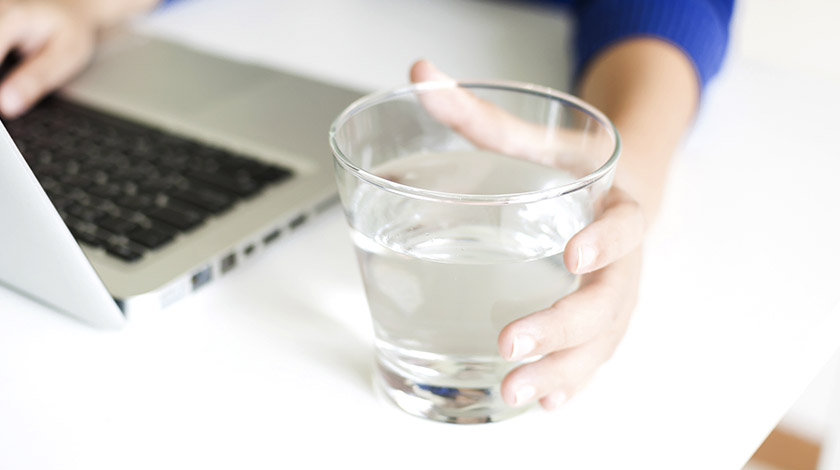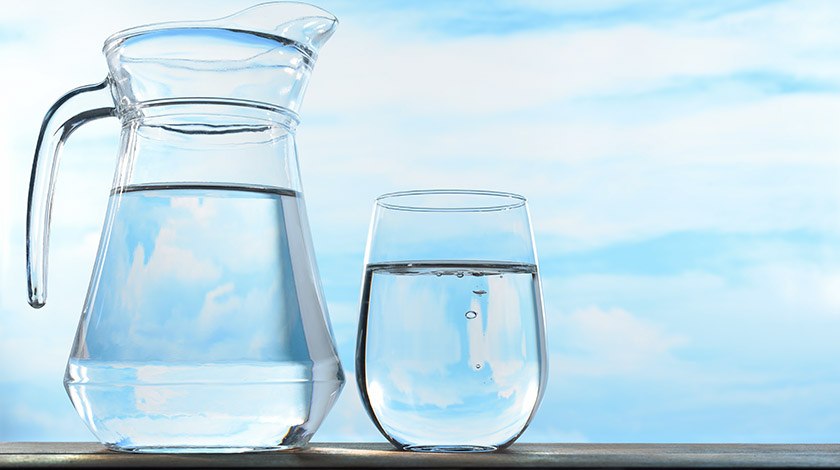Whenever we sweat, urinate or even exhale, water is escaping from our body. That’s why adequate water consumption is essential for healthy bodily function — even losing 2% of your body weight in water can impair your physiological performance.
Below, we answer three FAQs to help you maintain an optimal water intake.
Can you drink too much water?

Yes, but it’s difficult to imagine how, in an ordinary scenario, we would consume enough water to endanger ourselves. Excessive water drinking or “polydipsia” can lead to brain swelling and unconsciousness. However, polydipsia usually requires consumption of more than 5 liters of water in a short period of time, and usually only occurs in people suffering from brain damage, psychiatric illnesses, diabetes or injury.
There’s no need to consume vast quantities of water to stay healthy. Drinking 1.5 to 2 liters per day is enough!1
Do caffeinated drinks count in your daily fluid intake?

Research studies have shown that tea or coffee can help to hydrate you — they do, after all, contain water — but the diuretic effect of caffeine means that other sources of water are far more effective. Drink juice, herbal tea or just good old water if you’re feeling thirsty!
When should I drink water?

Whenever you’re thirsty, and sometimes even if you’re not! If you’re feeling thirsty, you’re probably already dehydrated. If you’re losing more water than usual, drink up too — you may be drinking alcohol, which is also a diuretic, or exercising vigorously, which makes you sweat more.
Some scientists think that moderate water consumption during meals can also aid digestion — particularly if you’re having a high fiber meal.
Drink up for a healthier lifestyle!
Sources
- Liquids for life.British Nutrition Foundation. Visited 4 February 2014.

